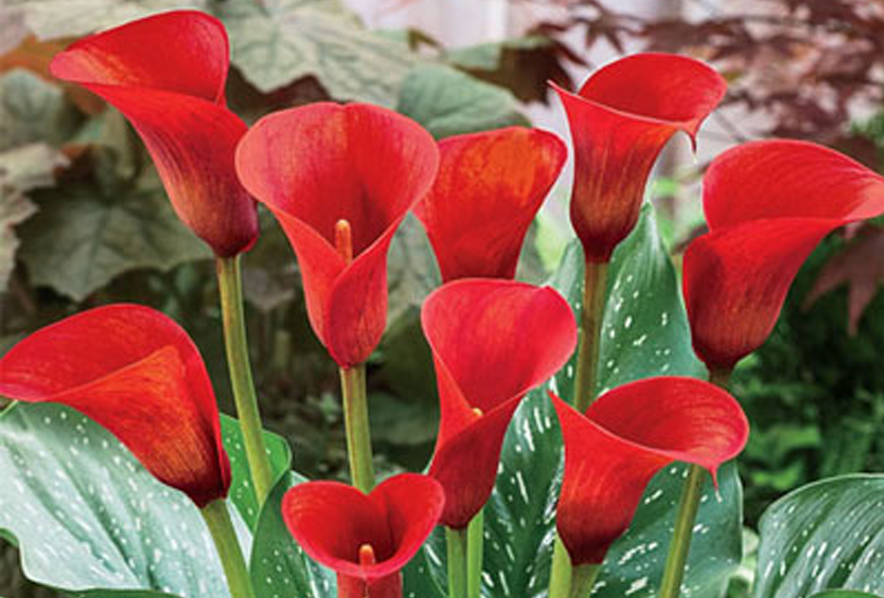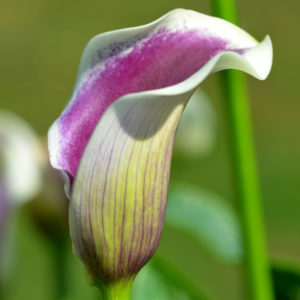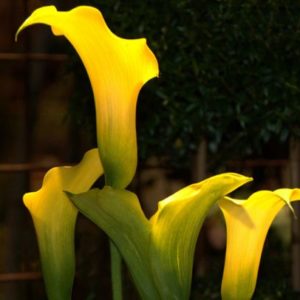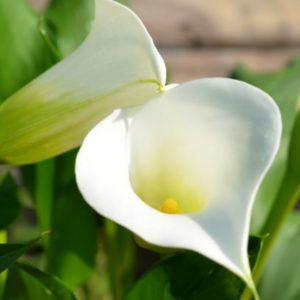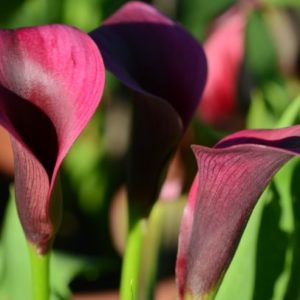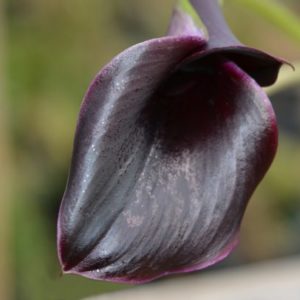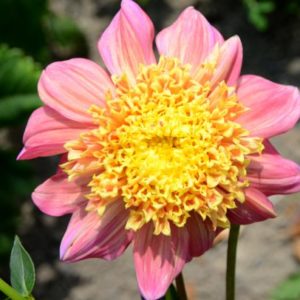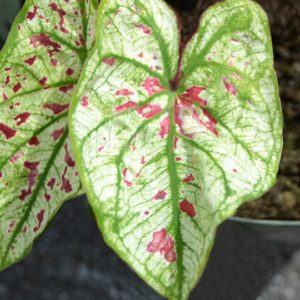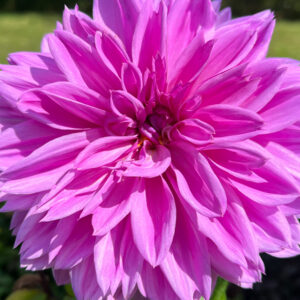Description
 Calla Lily, Rocket
Calla Lily, Rocket
Calla Lilies are as close to the perfect plants as you are going to get on this planet. They can adapt to full sun or partial shade. First, for a tropical, callas are incredibly hardy and with careful mulching and a protected environment can withstand temperatures below freezing. Second, they multiply rapidly. Third, they LOVE being grown in containers and make excellent houseplants as well as outdoor plants. Fourth, they are the easiest of all plants to winter over in your home, and fifth, both their leaves and their “flowers” are exotically ornamental.
Their “blossoms” are actually brilliantly colored leaves which the plant uses to attract pollinators and to protect the nondescript flowers which emerge from the center of the spathe. These blossoms last for an incredibly long time – at least 4 to 6 weeks. They make excellent cut flowers. AND, because of their tolerance for low-light conditions, they CAN be grown indoors! It is nearly impossible to find a group of plants with so many desirable attributes.
All of the Calla Lily species are native, exclusively, to South Africa. This is somewhat rare for a plant family to be native to such a small area. The plants were discovered in the early 1700s and introduced for commercial sale in Europe and the British Isles in 1731. The plants exploded in popularity during the Victorian Era (1837-1901) when Upper and Middle Class Europeans, Brits and Americans began to engage in leisure travel and observed these plants in their native South African habitat. In their native habitat, Calla Lilies can grow to 6+ feet with spathes as large as 1 foot. Outside of their native environment, Calla Lilies rarely grow taller than 36 inches, and most of the new cultivars have been bred to be less than 24 inches.
For years now, Calla Lily experts have been trying to breed a truly red Calla. Rocket is the most recent result of those efforts. This Calla, unlike any other Calla, has a spathe the interior of which is scarlet – not pinkish red nor orangish red – true scarlet. The outside of the spathe has a broad band of red, but fades to a very pale red near and at the stem. The leaves are highly variegated, and the plant can reach a height of 10-14 inches.
At Harvesting History, we believe that Calla Lilies, like dahlias, are some of the most underappreciated plants available to Americans today.
Planting Calla Lilies in Your Garden
Calla Lilies are grown from a type of bulb known as a corm. Corms appear to be a somewhat flattened disk with a top and a bottom.
Corms, unlike true bulbs, only last for one year, but during that year they produce bulblets from small round protrusions located on the surface of the bulb as you can see from the following photo. These bulblets will each form a new plant. The original corms can be incredibly prolific.
Calla Lilies need 3 things:
- Lots of organic matter
- Frequent feeding
- Frequent watering
If you are planting Calla Lilies in the ground remember that Calla Lilies are not, in general, hardy except in Zones 7-11. The one exception is Calla Aethiopica which, if mulched and planted in a protected area, can be hardy in Zones 6-11.
When planting Calla Lilies in the ground, dig a hole about 8 inches deep. Amend the soil you will place back in the hole with peat moss. This will provide the bulb with great organic matter. Mix ½ soil and ½ peat moss. Place about 2 inches of soil mix in the hole and then dust the hole with bone meal (about ¼ cup). Place the bulb in the hole and fill the hole with your peat moss and soil mixture. Then soak the area with water.
If planting more than one Calla Lily and they usually look better when planted in groups of three, separate the corms by 4-6 inches.
Calla Lilies perform best when fed a high nitrogen fertilizer. Remember that what you are hoping to achieve is various kinds of leaf growth, so nitrogen is what is necessary. Mulching in the fall with compost is highly recommended. However, we have a better idea when it comes to planting Calla Lilies in the ground. We think you should plant all your Calla Lilies in pots and then bury the pots in the ground.
Planting Calla Lilies in Containers
Calla Lilies can be grown easily in containers. We recommend using a 6-7 inch diameter container and planting 1 bulb per pot. Check out the soil mix described in detail in our Harvesting History YouTube video. Do not use prepared soil mixes.
We recommend you modify the soil mix described in our YouTube video using 40% soil, 40% peat moss and 20% compost or composted cow manure.
Place 2 inches of soil in the bottom of your pot, and then place your bulb in the pot. Fill the pot with more of your mix and then dust the surface of your pot with ¼ cup of bone meal. Water heavily and keep the soil moist but not soaking wet.
You can start your Calla Lilies indoors 6 weeks before you plant them outside. If you are planting them directly in your garden, dig a hole large enough to accommodate the pot and bury the pot covering the top with 2 inches of soil.
If you are growing Calla Lilies in pots, you must fertilize every two weeks and you must keep the soil moist. Calla Lilies are heavy feeders. You will see a major difference if you fertilize.
In the fall, all you have to do is dig the pots up or remove the pots from your deck or porch. Store the pots in a basement or garage where they will not freeze. Leave them alone. Do not water. Do not feed. In the spring, bring the pots out and water with a water soluable bloom booster fertilizer every time you water.
The Best Soil Mix for Containers
Harvesting History has a collection of YouTube videos on calla lilies. Click on the individual link to view each video.
CALLA LILIES – THEIR HISTORY AND BACKGROUND
PLANTING CALLA LILIES IN CONTAINERS
4 GREAT CALLA LILIES

